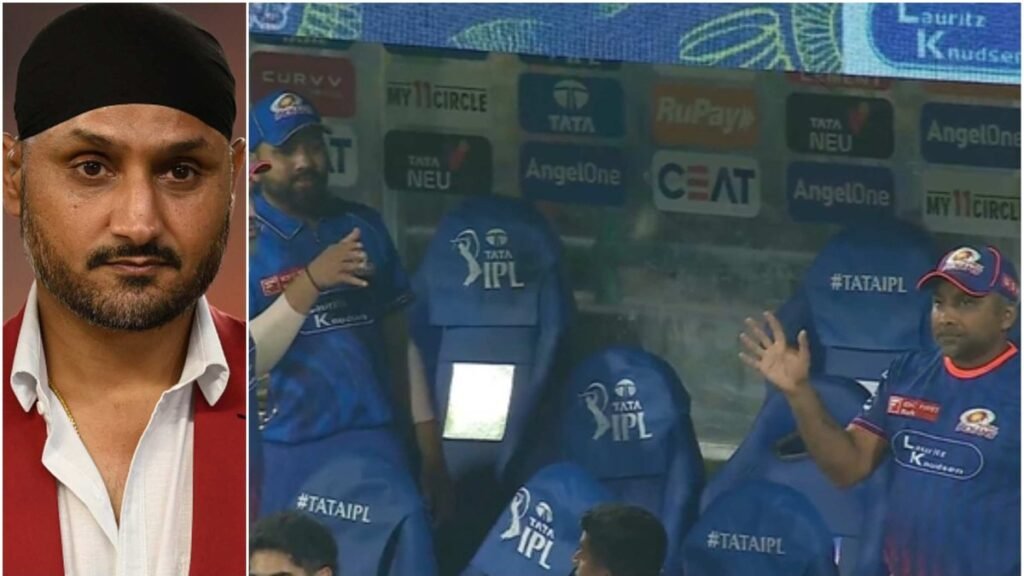
Former Indian spinner Harbhajan Singh has come out in strong support of Rohit Sharma’s captaincy instincts during a recent Mumbai Indians match, subtly critiquing the strategic input of Mahela Jayawardene. His comments have sparked a fresh round of discussions around team strategy, leadership authority, and the evolving dynamics within the Mumbai Indians franchise. Harbhajan’s words underline not just the respect Rohit commands among former cricketers, but also the belief that his on-field experience continues to be invaluable for the five-time IPL champions.
Harbhajan Singh, who spent a large part of his IPL career with the Mumbai Indians and won multiple titles with the franchise, minced no words in saying, “If they had gone with what Jayawardene had to say, the Mumbai Indians would have also lost this game. Rohit Sharma was there, he had the best move. He is the captain. He always thinks like a captain.” His statement suggests that a critical decision during the game was taken by Rohit — one that overruled the instructions or strategic input from Jayawardene, the team’s Global Head of Performance.
The context of the remark revolves around a high-pressure match where strategic decisions — be it field placements, bowling changes, or batting order tweaks — had a major bearing on the final outcome. While the specifics of the strategy difference between Jayawardene and Rohit remain undisclosed, Harbhajan’s comment implies that Rohit’s experience and reading of the game from the ground proved to be the decisive factor.
This is not the first time Rohit Sharma’s leadership instincts have been praised. Known for his calm demeanor and sharp cricketing brain, Rohit has guided Mumbai Indians to five IPL titles, the joint-most in the tournament’s history. He has also been credited with grooming young talent and turning close matches in Mumbai’s favor through smart captaincy. His ability to handle pressure and adjust tactics on the fly has earned him accolades from teammates, opponents, and cricket experts alike.
Jayawardene, on the other hand, has been an integral part of Mumbai’s backroom staff and was the head coach during their dominant IPL runs. His move to the role of Global Head of Performance was meant to broaden the franchise’s talent development and long-term strategy. However, Harbhajan’s comments subtly highlight the sometimes blurry line between strategic oversight and tactical interference, especially in crunch situations where on-field decisions carry immediate consequences.
This debate also brings attention to the broader question of leadership roles in IPL teams. While modern cricket franchises are often heavily reliant on data analysts, coaches, and support staff, the captain remains the one in the thick of the action, feeling the pulse of the game. Harbhajan’s support for Rohit is a nod to the idea that instinctive, experience-based decisions can often trump data-driven strategies, especially in the unpredictable format of T20 cricket.
As the Mumbai Indians continue their 2025 IPL campaign, all eyes will be on how the internal dynamics play out. But if Harbhajan’s words are any indication, Rohit Sharma still commands immense trust as a captain — both from within and outside the team — and his game sense might just be the factor that keeps Mumbai in the hunt for another title.
For more news updates, follow 12B Sports India Facebook .

